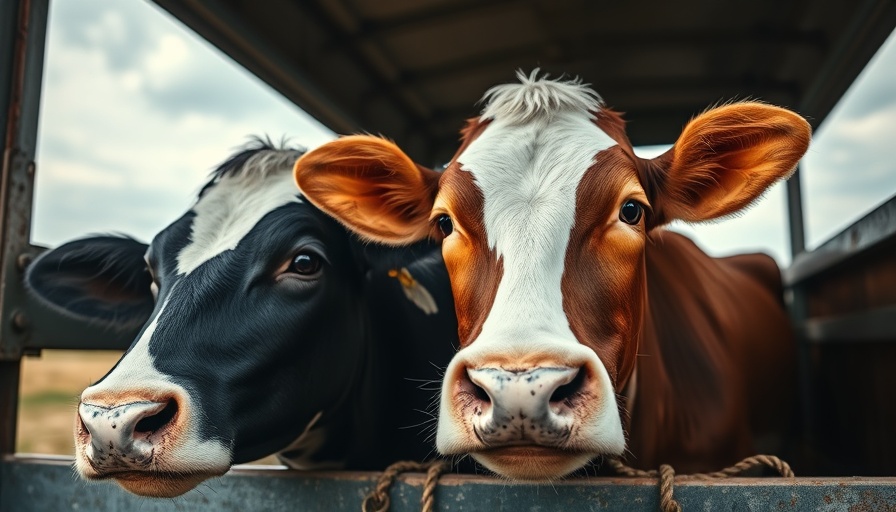
Understanding the Warnings: Flesh-Eating Parasite Threat
The U.S.-Mexico border has recently witnessed an unprecedented closure, raising alarm bells over a flesh-eating parasite known as the New World screwworm. This infestation, primarily affecting livestock, has prompted officials to act swiftly to safeguard both animal and human health.
The Impact on Livestock and Communities
The screwworm is a parasite that can lead to severe infections, resulting in immense suffering for cattle. In impacted regions, farmers are more than just participants in agriculture; they are community stakeholders whose livelihoods depend on healthy livestock. The closure thus resonates deeply within these communities, affecting local economies and food sources as ranchers are forced to confront an uncertain future.
Preventive Measures and Community Resilience
As the health departments mobilize to control the outbreak, the importance of education surrounding animal health can’t be underscored enough. Farmers are advised to monitor their livestock closely and implement biosecurity measures to prevent the spread. Community workshops could enhance awareness, helping ensure that all cattle owners know the risks and preventive tools available.
Environmental Considerations: A Bigger Picture
This incident highlighted a larger issue: the relationship between environmental health and agricultural practices. The increasing prevalence of such parasites is often linked to shifts in climate and land use. By integrating sustainable practices and caring for the environment, we can reduce these risks and promote a healthier ecosystem that benefits us all.
Conclusion: The Importance of Vigilance
While the closure poses immediate challenges, it also opens a dialogue about the intertwined fate of our agricultural systems and environmental health. Understanding the implications of this outbreak pushes us towards a more mindful approach to farming and community well-being.
 Add Row
Add Row  Add
Add 



 Add Row
Add Row  Add
Add 

Write A Comment